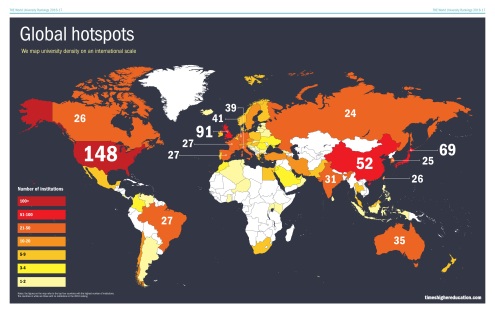30 /01/2017
This year Tsinghua students from the Humanities Department organised a homestay for International Students to experience Chinese New Year in the home of our fellow Chinese students. Entirely randomly allocated, my host opened up her home to me for 4 days during which we had some insightful conversations about education and marriage, ate the most incredible Fujian seafood cuisine and saw some stunning scenes of Fuzhou.
Out of her entire friendship group, M was the only one to stay in China to complete her University education. Having graduated from the best secondary school in Fujian province, others had ventured as far as the UK, Singapore, USA, Germany and France. Evidently all came from fairly wealthy families, but there was a common underlying theme as to why Chinese students were choosing to study abroad: the quality is perceived as predominantly better. During secondary school, M told me that English was taught by repetition under the pretence “practice makes perfect”. Students were encouraged to use complex grammar structures even if the context was incomprehensible hence many have since had to re-learn their secondary education or pay for a private tutor in order to successfully pass the English language proficiency tests.

It would be an understatement to declare education as highly valued within Chinese society. Households put immense pressure on children from a young age to outperform their classmates. Grades are publically published for students, teachers and parents to compare performance, and unlike the UK there is zero taboo in asking fellow students about their results. Whilst hiking around the Yanshan Mountain which overlooked the city, M and I ran into some friends of her parents whose daughter had recently been accepted into Peking University as an Undergraduate. Whilst M couldn’t tell me the girl’s name, she knew her gaokao score, the results of her English language proficiency test, and all of her extra-curricular activities.
Nevertheless like any country, students with extensive financial means can progress easily onto highly rated education facilities. M told me about a friend of hers that earned an offer from Oxford University to do a Master’s degree in Psychology. In order to gain admission, her friend had to have a certain score in the TOEFL (English language proficiency examination) costing 2000RMB per exam. M’s friend had to take the exam eight times before she finally had an acceptable score. M’s friend was also accepted into Columbia University in the USA, yet given that she was unable to decide between the two, she ended up completing two Masters Degrees consecutively, with a price tag of approximately 1,000,000RMB.

I asked M if she thought this was fair. She looked perplexed and told me no one would know her friend had had to take the exam eight times, and who would care? She had enough money to do what she wanted. M told me friends of hers often spend their summers undertaking language courses in Europe, completing summer schools in the USA to enhance music or sporting ability or volunteering on humanitarian projects in developing countries. Whether they enjoy them or not, they are sent by their parents for the sole purpose of improving their GPA. This is because for the elite of China, second rate Universities are unacceptable and pointless.
Parents will often hold a very assertive influence on their child’s life decisions such as University major, where to live, who to marry and what career path to follow (substantial income preferred). Discouraged from working part-time jobs, parents are subsequently their only source of income, leading to entire and complete dependence. This support is expected to be returned once the child begins working hence it is simply a financial contract whereby the more parents invest into their child’s education, the higher the returns are anticipated. With four grandparents, and two parents to support, many would consider this a significant burden.
Nonetheless, M professed she thoroughly enjoys being an only child for the following reasons: she never has to share her food, any spare income her parents earn goes straight into her pocket and she has their absolute, relentless attention and support. Assuming M would therefore be very close and affectionate with her parents, I was surprised when she told me she does not ‘hang out’ with them, as they have absolutely nothing in common and she doesn’t enjoy their company. When in Beijing, she never misses them and only returns home to escape the pollution and during National holidays.
I considered maybe another reason for this animosity was perhaps due to her parent’s incessant interrogation as to whether M had a boyfriend. At the age of 23, M’s ambition is to pursue a PhD in Chinese literature. Allegedly there is a saying in Chinese that there are three types of people in the world. Men, women and women with PhDs. In China, it generally takes three years to complete an Undergraduate, a further two years for a Masters and six years for a PhD. Hence by the time a woman has accomplished the highest level of education, she is no longer valued by society as she will have gone past her ‘sell by date’ despite not yet reaching 30. M told me that those who are unmarried by the age of 30 are stigmatised. People will assume there is something wrong with their body or mind for not having found a partner. Seeing my face drop, M told me not to look so shocked and that she had found a solution to the problem. On taobao you can ‘rent’ a boyfriend to introduce to inquisitive, gossiping parents during Chinese New Year. At approximately 300RMB a day[1], she said it was worth the money to set her parents mind at ease.
Bibliography
[1] http://www.businessinsider.com/rent-a-boyfriend-on-taobao-2014-1?IR=T
Image 1) Own; taken whilst hiking in Fuzhou in January 2017
Image 2) ‘How the world’s top universities are distributed’ World Economic Forum https://www.weforum.org/agenda/2016/10/top-universities-distributed-world-map/
Image 3&4) Own; taken whilst hiking in Fuzhou in January 2017


